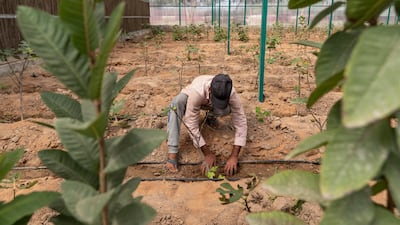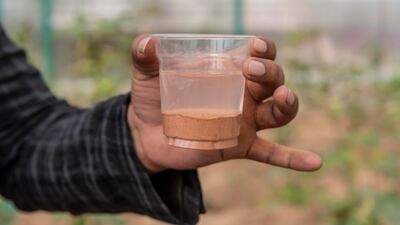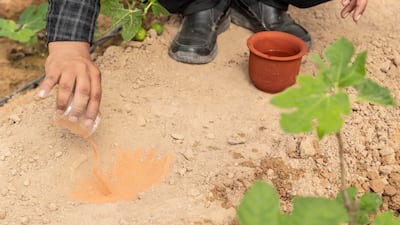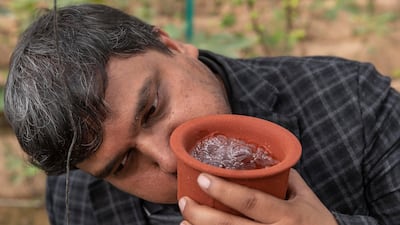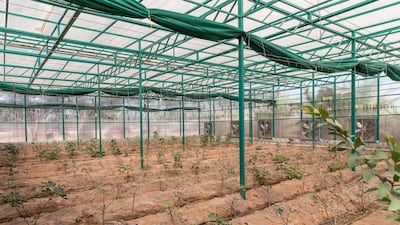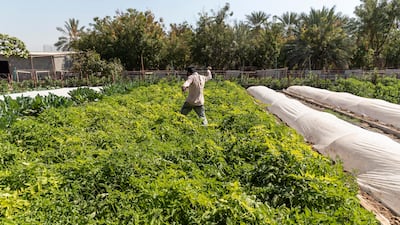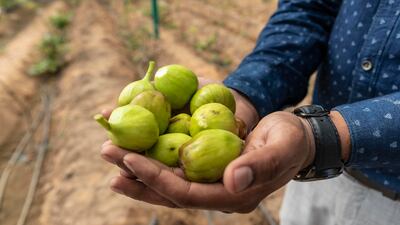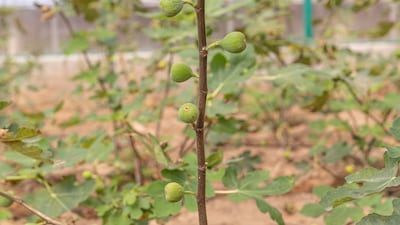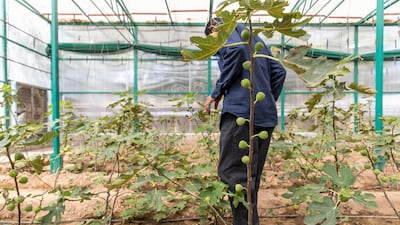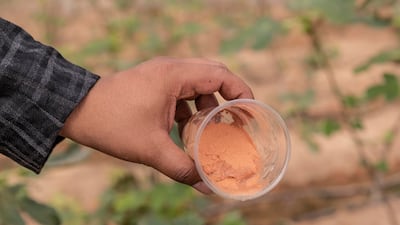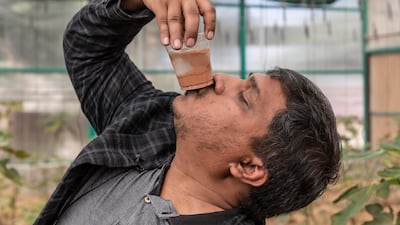At a farm in Ras Al Khaimah, a revolutionary technology is making the most of a ubiquitous material – sand. It has helped to transform the desert grounds into 4,800-square-foot arable land to plant vegetables and fruits.
About 800 fig trees that were planted inside a greenhouse in December, are already bearing fruit. Earlier, the trees had to be watered every day for five minutes.
However, with the "breathable sand" or Rechsand technology, the trees only need to be watered once in two days for two to three minutes.
“The water consumption of the farm has been reduced by 80 per cent,” said Chandra Dake, founder of Dake Group in South Africa.
In a nearby 100-square-metre area, about 900 plants produce tomatoes with the same technique.
Besides water retention, Rechsand has another special characteristic, it allows air to pass through it.
On the day The National visited, Mr Dake brought a pot made of Rechsand, filled it with water and blew into it from the side. Air bubbles appeared in no time.
“This is to demonstrate the breathability of the sand,” he said.
Rechsand enhances air circulation around the roots, while retaining water. The product was first patented in 2010 by the Rechsand Technology Group in China. Mr Dake, who moved from South Africa to the UAE in 2018, brought the technology to the Emirates after a collaboration with the Chinese company. The goal was to help turn the desert into lush green cover.
“Every plant requires a small quantity of Rechsand,” the Indian businessman said. “Only one-centimetre deep sand needs to be spread at the bottom of the plant. It is then topped with regular desert sand, compost and nutrients. For one tonne, you can convert a whole acre of land and plant 300 to 400 trees.
“It is a one-time application for the life of the farm.”
For any kind of plant, just one centimetre of Rechsand is sufficient. However, the diameter of the spread depends on the size of the plant. Rechsand for a small plant such as a flowering plant, costs Dh10 to Dh12.
Whereas for a big tree, it can cost in the range of Dh250 to Dh300. The product is currently manufactured at a plant in Beijing, where sand is first obtained from a desert in Mongolia and then treated to give it selective permeability.
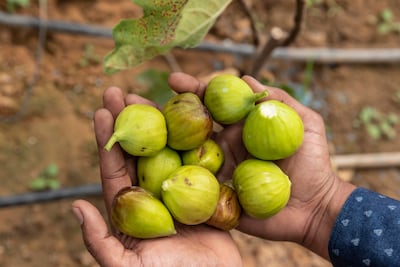
The company plans to begin Rechsand’s production in the UAE in 2023.
“The manufacturing itself is a complex process because we are changing the way the sand molecules interact with one another and with external mediums. Every machine is custom-made,” Mr Dake said.
“It involves adding a few minerals and incorporating heat into it. We alter silica’s natural properties so that it is able to handle water and air differently.”
Over the past two years, Dake Rechsand has demonstrated the potential of the technology in farms and gardens in the UAE.
Al Ajban farms in Abu Dhabi is abundantly growing pulses, beans, tomatoes, chilies, mangoes and lemons.
The sand has been used in many schools, while the Ras Al Khaimah Municipality has agreed to plant 1,000 trees using the technology. The figs will be harvested in another three to four months.
They are aimed for local consumption. However, an additional 100,000 square metres of land in Ras Al Khaimah is being prepared to produce figs next year, which could then be used for exports.

